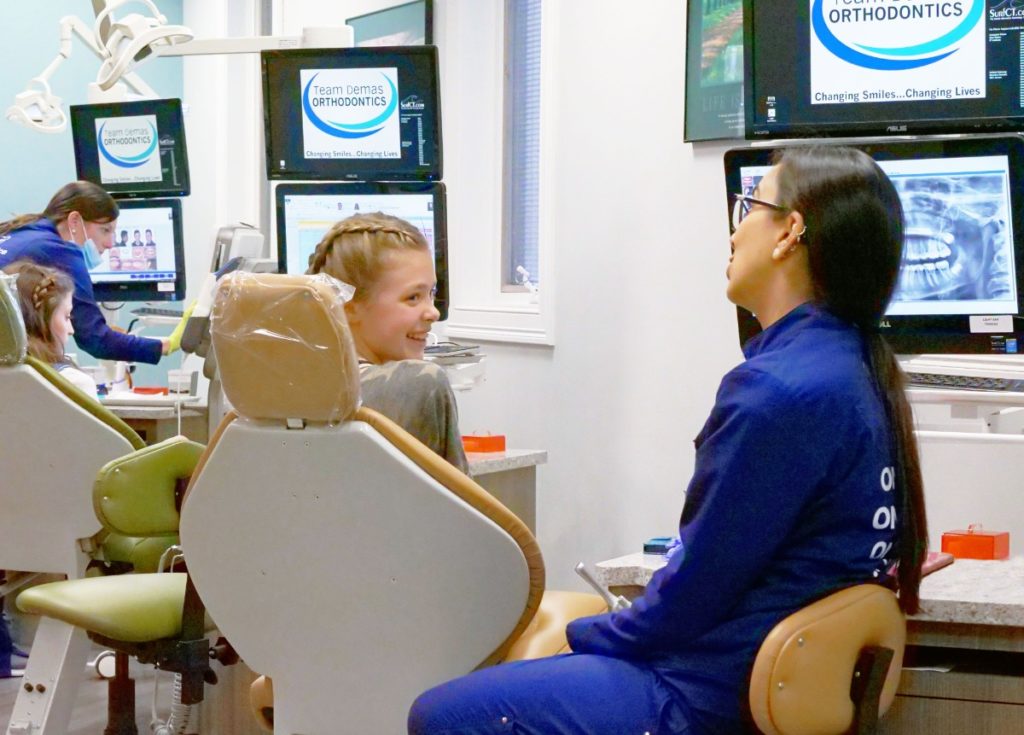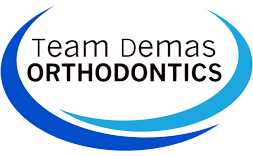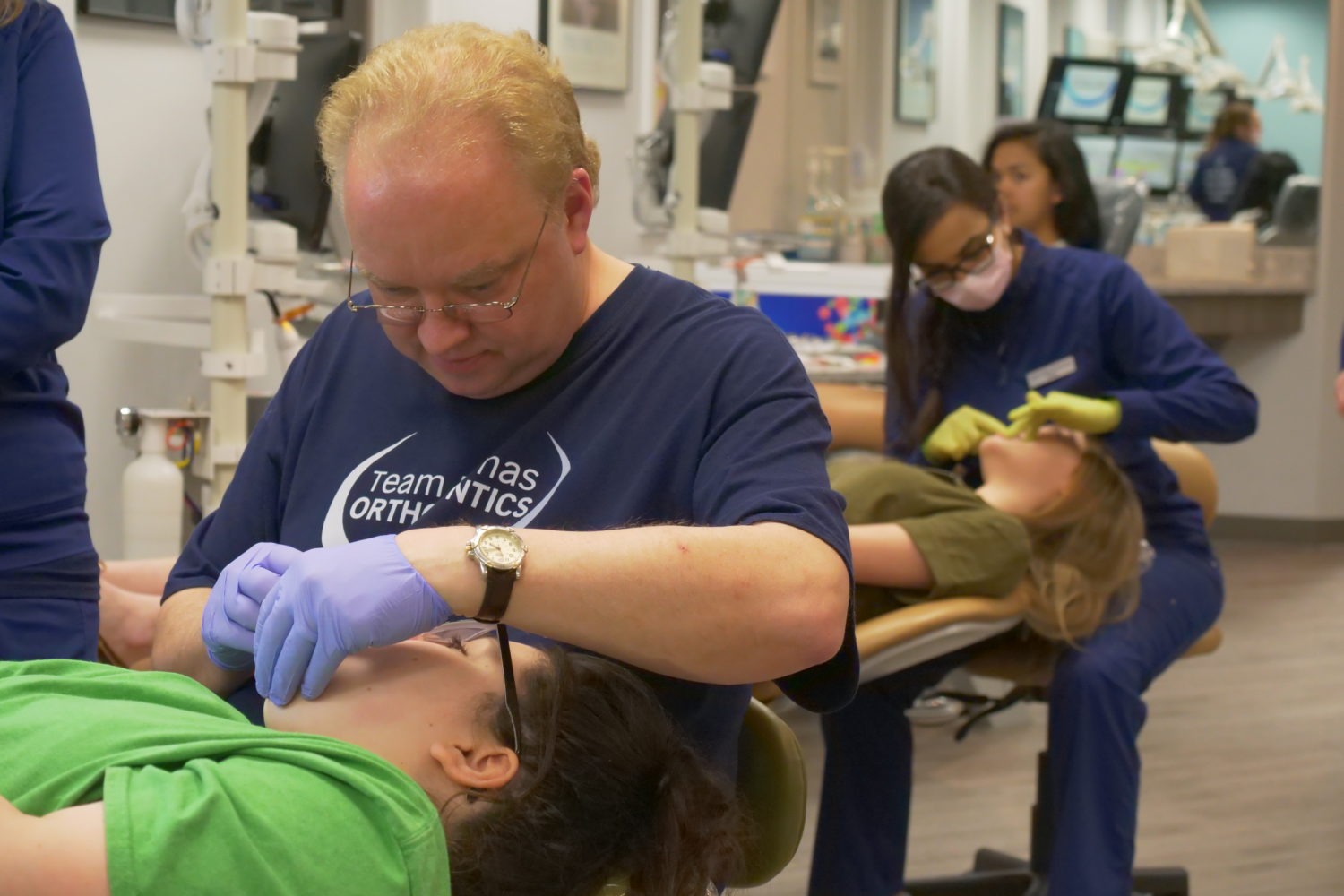
Nutrition and Oral Health
Most of us are aware of the many ways a balanced diet is important to our overall health. But did you know that what you choose to eat and drink can also play a role in your oral health? At Team Demas Orthodontics, we’ve been straightening smiles for over 20 years, but that’s only one part of what we do. We’re here to help you improve the health of your teeth and gums, too!
Orthodontic treatment is one way to achieve this, but a nutritious diet is also an important part of the process. To give you a better understanding of how nutrition and oral health are linked, we’re going to take a look at how good foods can protect your teeth, how a poor diet can negatively affect them, and what you should aim to eat in order to maintain a healthy, happy mouth. Keep reading below to learn more!
Nutrition as a building block of oral health
Nutrition can affect our oral health before we’re ever even born. When an expectant mother consumes food and drink containing nutrients like calcium, vitamin D, phosphorus, and protein, it helps a baby’s teeth begin to form and mineralize properly. It doesn’t stop there, though. Throughout the teen years, our teeth continue to develop and mineralize, and over the course of our life, the oral tissues are constantly recycling. To support this process successfully, we need to consume a variety of vitamins and minerals. One of the easiest ways to do this is by eating a healthy diet!
When you get right down to it, good nutrition is not only a building block of oral health, it could also be considered a preventative measure. Nutritional deficiencies have the potential to reduce your resistance to dental disease, and also inhibit your body’s ability to fight certain types of infection. Your overall diet can help prevent tooth decay and enamel erosion….or it can contribute to it! That’s because human mouths are naturally hospitable to all different kinds of bacteria. While many of these are helpful, there are also some that can be harmful.
Many of these more harmful microorganisms thrive on the sugar in your diet. As they process this ingested sugar, the bacteria begin to produce acids that can eat into the enamel of your teeth. This can set the stage for small holes forming, better known as cavities. If left untreated over an extended period of time, tooth decay can worsen. It may become painful, and it can cause teeth to loosen or even fall out eventually. This is one of the biggest reasons for avoiding too much added sugar in your food and drinks.

Adopt a healthier diet for a healthier mouth
Fortunately, concerns about sugars in certain foods such as whole grains, fruits, and vegetables are unfounded. There is no evidence that these naturally occurring sugars are harmful to the teeth, even in starch-rich staples like bread, rice, and potatoes. This is good news for your smile since these items can be excellent sources of healthy vitamins and minerals! Foods like this can benefit your overall health in a number of ways, but more specifically, they strengthen your teeth and help protect enamel. Even better: they’re also safe for braces, if you wear them!
Here’s a brief rundown on how healthier choices in your diet can give you a brighter, stronger smile, and improved oral health.
Milk and other dairy products
This is hardly a chore, because who doesn’t love cheese? But besides being delicious, dairy products like milk, cheese, and yogurt make excellent snacks, and pack a punch of calcium that will help to keep your bones and teeth strong and healthy.
Whole grain bread and pastas
Complex carbohydrates contained in certain whole grains give bacteria less digestible food to grow on. They also possess a bunch of different nutrients to help your mouth stay healthy.
Chicken, red meat, and fatty fish
Though we usually hear about these foods in terms of the protein they offer, they also contain phosphorus, which is a vital component in strengthening your teeth and protecting the tooth enamel.
Fresh fruits and vegetables
Eating a rainbow of fruits and veggies is one of the best things you can do for yourself! Leafy greens are particularly good for your oral health since they contain high amounts of magnesium, vitamin A, vitamin C, beta carotene, calcium and magnesium. These minerals are instrumental in improving and maintaining oral health.
Water
We may drink a ton of sodas, juices, and sports drinks in this country, but they are notorious for leaving behind sugars that are a banquet for bad bacteria. As the bacteria devours this sugar, it produces acid that can eat away at the enamel of your teeth. Sodas and juices can also have phosphoric, citric, or malic acids added to them, which can exacerbate any enamel erosion you’re already experiencing.
On the other hand, water is wonderful for your oral health. It protects your mouth by washing away any leftover food and debris that bacteria typically flock to, and it also dilutes the acids produced by the bacteria in your mouth. Suffer from dry mouth or bad breath? Drink more water! Although drinking water throughout the day is no substitute for a regular oral hygiene routine, it can go a long way towards keeping your mouth clean, healthy, and free from cavities.

What’s the best diet for your smile?
This is a tough question to answer, because the best diet will vary from person to person, and depends mainly on age, gender, height, weight, and fitness. That said, most people will benefit from the following concepts.
Variety
Don’t fall for any diets or advertisements that tell you any single food, drink, or shake can meet all your daily requirements. Eating a variety of foods and washing them down with water is the only way to hit nutritional milestones. It also makes mealtimes much more interesting!
Balance
In order to maintain a balanced diet, you should aim to eat a variety of foods from each of the five major food groups daily. This includes:
- whole grains
- fruits
- vegetables
- lean sources of protein such as lean beef, skinless poultry and fish, dry beans, peas, and other legumes
- dairy foods
Additionally, you may want to look at limiting the number of snacks you eat in between meals. When you do feel hunger strike, try to choose something healthy instead of packaged or processed foods, such as a fruit, vegetable, or a piece of cheese.
Moderation
Your teeth aren’t the only reason to pay attention to any excess snacking! It’s not just what you eat that affects the level of acidity in your mouth; when you’re eating matters, too. Foods that are eaten as part of a meal actually cause less harm to the teeth than eating lots of snacks throughout the day, because more saliva tends to be released during a meal. That extra saliva helps to wash foods from your mouth, and also neutralizes any harmful acids being produced.
In general, foods and beverages should be consumed in the appropriate serving sizes whenever possible. This is especially important when it comes to anything that’s heavy on added sugar for all the reasons we’ve outlined above!
Let Team Demas Orthodontics help you find your healthiest smile
It’s undeniable that what you choose to eat and drink can have a powerful impact on your oral health, for better or worse. While we can provide the orthodontic treatment to give you a straighter smile, you can improve your own oral health by adopting a healthier diet. This has the benefit of improving your overall health, too! If you’re in Southington or any of the surrounding communities, and want to learn more about how good nutrition can improve your oral health, get in touch with us today! We’re always happy to educate patients on ways to improve their oral hygiene at home for a bright, sparkling smile!



